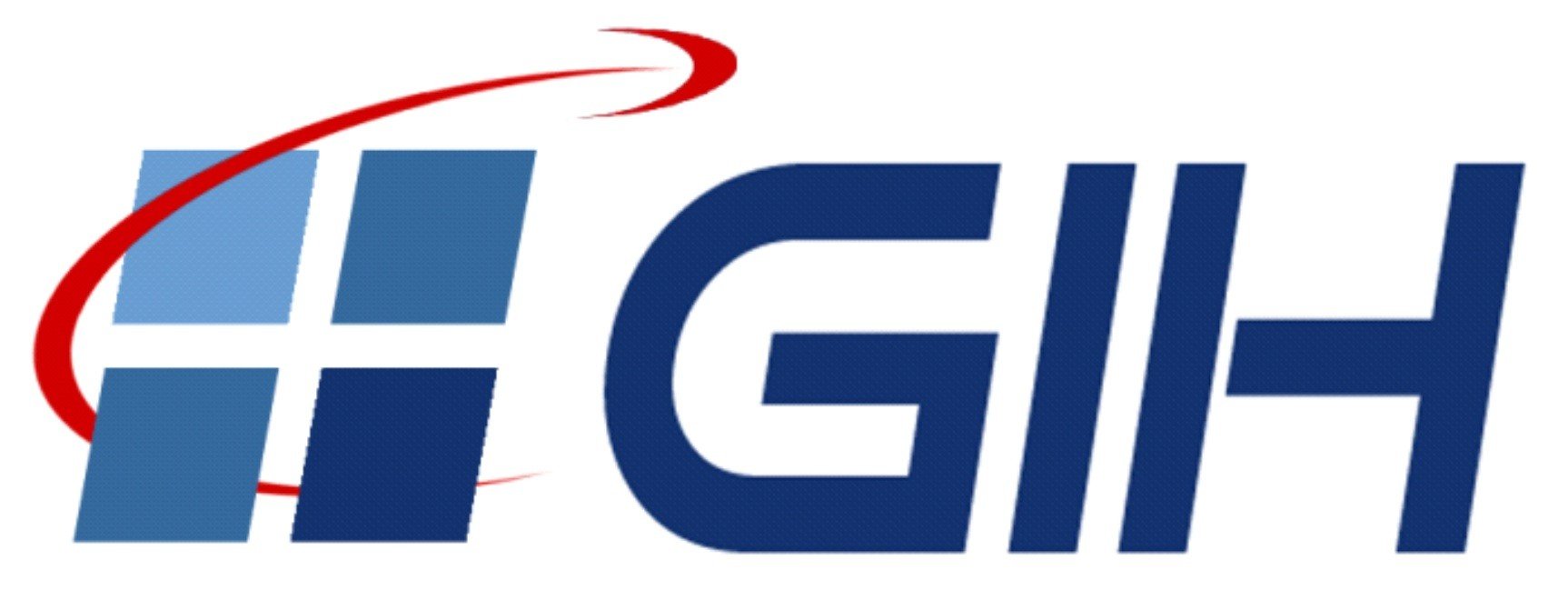Projects | TLS-based Multi-Sensor-Systems
-
Monitoring a track warping testGIH was responsible for the metrological monitoring of a very unusual test conducted by Deutsche Bahn - a track warping test. A previously selected rail area was heated to a very high temperature, which initially caused the rail to deform and then warp. This track warping test took place in June 2017 in southern Lower Saxony.Led by: Ingo Neumann, Jens-André PaffenholzTeam:Year: 2017Duration: 05/2017 - 12/2017
![]()
![]() © GIH / U. Stenz
© GIH / U. Stenz
-
QViZO - Quality-oriented virtualisation of time-variable object spacesThe aim of the QViZO project is to shift location-based recording, administration and business processes from the local area to virtual space. Buildings, objects and structures are captured using multi-sensor systems, represented as coloured 3D point clouds and made available to users as an authentic digital twin for viewing, assessment and analysis. In order to guarantee a legally robust and technically reproducible level of object authenticity, it is necessary to describe when a virtual image can be legally equivalent to its real counterpart. This R&D project therefore aims to develop a novel procedure and a key technology for the quality-compliant virtualisation of time-variable object spaces. The target groups are in particular the construction and surveying industry, building owners and surveyors. The solution to be developed is intended to significantly reduce on-site appointments by enabling all parties involved to access the "digital twin" of the property virtually and from any location, so that a legally binding assessment and participation in business and administrative processes is possible.Led by: Ingo NeumannTeam:Year: 2020Duration: 2020 -2022
![]()
![]()
-
AutoMap - Development of a robust positioning system for autonomous vehicles based on captured environmental information and GNSS/IMU dataDetermining the exact position of vehicles is not only crucial for autonomous driving, but also for many other applications. However, existing technologies, such as global navigation satellite systems (GNSS) or inertial measurement units (IMU), are reaching their limits due to interference and inaccuracies, especially in urban areas.Led by: Hamza Alkhatib, Sören VogelTeam:Year: 2023Duration: 2023-2025
![]()
![]() © GIH
© GIH
Projects | Expert-based data analysis and quality processes
-
Efficiency optimization of geodetic measurement processesThe efficiency optimization of measurement and evaluation processes of engineering geodesy requires a detailed modeling of the individual sub-steps. This modeling is realized by means of Petri nets. Thus computer-aided simulations can be carried out. To minimize the cost or duration of the measurement processes Genetic algorithms are used as an optimization method.Led by: Hansjörg KuttererTeam:Year: 2009Funding: DFGDuration: 05/2009 - 06/2014
![]()
![]()
-
Risk Minimization in Structural Safty MonitoringOne main goal of structural safety monitoring is minimizing the risk of un-expected collapses of artificial objects and geologic hazards. Behind these activities in the DFG founded project, it is the need of the society in mini-mizing the negative environmental impacts. An optimal configuration for measurement setups and all other decisions shall therefore review and ra-te the risks of an individual monitoring project. Nowadays, the methodolo-gy in many engineering disciplines and mathematically founded decisions are usually based on probabilities and significance levels but not on the risk (consequences or costs) itself.Led by: Ingo NeumannTeam:Year: 2010Funding: DFGDuration: 09/2011 - 08/2014
![]()
![]()
-
Simulation-based optimization of tachymetric network measurementsIn geodetic networks of large extent or with a large number of points, the tachymetric network measurement is usually associated with a high logistical effort. The individual measuring points must be visited again and again in order to align the reflectors to the current tachymeter position. The efficient planning of the measurement has the goal of causing the lowest possible costs or it aims at the shortest possible measuring duration.Team:Year: 2010Duration: 2010 - 2019
![]()
![]()
-
Measurement system analysis and model-based sensor fusion for hydrographic water exchange zone monitoring using unmanned carrier systemsThe aim of the project "Measurement system analysis and model-based sensor fusion for hydrographic water exchange zone monitoring with unmanned carrier systems (WaMUT)", which the GIH is working on on behalf of and in cooperation with the Bundesanstalt für Gewässerkunde (BfG), is the continuous, quality-assured acquisition and modelling of geo-base data of the water exchange zones and shallow water areas of federal waterways to improve the quality of - in particular small-scale - digital terrain models of the watercourse. In contrast to the classic geodetic observation methods for recording bathymetry and topography, the use of unmanned sensor platforms - primarily on land (unmanned aerial vehicle UAV), but also on the water (unmanned surface vessel USV) - has come into focus in recent years. As part of the WaMUT project, these measurement systems are to be validated and, based on this, a quality-assured, integrated measurement programme is to be created in order to be able to record reliable geobase data in the water exchange zones.Led by: Ingo Neumann, Hamza AlkhatibTeam:Year: 2020Duration: 09/2020 - 12/2023
![]()
![]() © BfG
© BfG
-
port_AI - A fully digital twin for port structures using IoT, 5G, BIM, AR and AI processes to establish smart building lifecycle managementThe demands on the safety and reliability of infrastructure management in the area of sea and inland ports are constantly increasing due to increasingly globalised trade. By creating a smart infrastructure, this project aims to solve various challenges in the management of existing port infrastructure. Digitalisation and the use of AI processes are also subsumed under the term smart infrastructure in this project.Led by: Ingo Neumann, Hamza Alkhatib, Mohammad OmidalizarandiTeam:Year: 2021Funding: Funding programme for innovative port technologies (IHATEC) supported by the Bundesministerium für Verkehr und digitale Infrastruktur (BMVI)Duration: 12/2021 – 11/2024
![]()
![]()
-
AutoMap - Development of a robust positioning system for autonomous vehicles based on captured environmental information and GNSS/IMU dataDetermining the exact position of vehicles is not only crucial for autonomous driving, but also for many other applications. However, existing technologies, such as global navigation satellite systems (GNSS) or inertial measurement units (IMU), are reaching their limits due to interference and inaccuracies, especially in urban areas.Led by: Hamza Alkhatib, Sören VogelTeam:Year: 2023Duration: 2023-2025
![]()
![]() © GIH
© GIH
Projects | Interdisciplinary Monitoring
-
port_AI - A fully digital twin for port structures using IoT, 5G, BIM, AR and AI processes to establish smart building lifecycle managementThe demands on the safety and reliability of infrastructure management in the area of sea and inland ports are constantly increasing due to increasingly globalised trade. By creating a smart infrastructure, this project aims to solve various challenges in the management of existing port infrastructure. Digitalisation and the use of AI processes are also subsumed under the term smart infrastructure in this project.Led by: Ingo Neumann, Hamza Alkhatib, Mohammad OmidalizarandiTeam:Year: 2021Funding: Funding programme for innovative port technologies (IHATEC) supported by the Bundesministerium für Verkehr und digitale Infrastruktur (BMVI)Duration: 12/2021 – 11/2024
![]()
![]()
-
OpenData4InfMon: Monitoring with GNSS sensors and open dataThe ageing infrastructure on land, rail and water requires significant resources to ensure operational safety. The monitoring of deformations, especially on bridge structures and other important infrastructure, caused by ageing, material fatigue and slow (also climate-related) ground movements, is currently very cost-intensive. It is therefore necessary to develop and evaluate mass-applicable and cost-efficient analysis methods based on open data sources combined with local GNSS sensors, which do not yet exist. The project will investigate the possibilities of strict fusion of free GNSS and radar data as well as 3D city models and traffic route plans for the purpose of better assessment of deformations on structures in combination with locally installed sensor technology, in particular on infrastructures such as railroad lines, power lines and (bridge) structures. The added value of the data is generated in particular by AI analyses and spatiotemporal parameter estimation in combination with local GNSS data.Led by: Ingo Neumann, Mohammad OmidalizarandiTeam:Year: 2023Funding: Bundesministerium für Digitales und Verkehr (BMDV)Duration: 03/23 – 08/24
![]()
![]()
-
Deformation analysis based on terrestrial laser scanner measurements (TLS-Defo): Surface approximation uncertaintyIn geodetic deformation analyses, we statistically test geometric changes in two or more states. To use the full potential of well-established surface-based measurement techniques such as terrestrial laser scanning (TLS) requires continuous local and global modeling of the monitored surface. The project on "surface approximation uncertainty" focuses on investigating the interaction between measurement and model uncertainties in the context of surface model selection. These components are closely connected, as the level of model uncertainty is directly influenced by the interaction between the complexity of the measured object, such as roughness and sharp edges, and the spatial density of measurement points across the object. To address this, the project distinguishes between three sub-topics: TLS uncertainty budget, model uncertainty, and the application of fractal geometry as a methodological tool to achieve the primary project goal.Led by: Ingo Neumann, Mohammad OmidalizarandiTeam:Year: 2023Funding: DFGDuration: 10/23 – 09/27
![]()
![]()
Projects | Land and Real Estate Management
-
Innovative approaches to services of general interest in rural areas - learning from the experiences of other European countries for Germany (InDaLE)In structurally weak and sparsely populated rural regions in particular, the consequences of demographic change and financially weak municipalities are jeopardising the existence of certain services of general interest. This is making it increasingly difficult to maintain services of general interest in the long term. Other European countries are in a similar situation, in some cases with a much lower population density. This is where the project comes in, in order to examine the extent to which there are established, innovative examples of projects for the provision of services of general interest in these countries, which can offer additional insights and solutions for Germany.Led by: Prof. Dr.-Ing. Winrich VoßTeam:Year: 2020Funding: Bundesministerium für Ernährung und LandwirtschaftDuration: 2020 - 2022
























